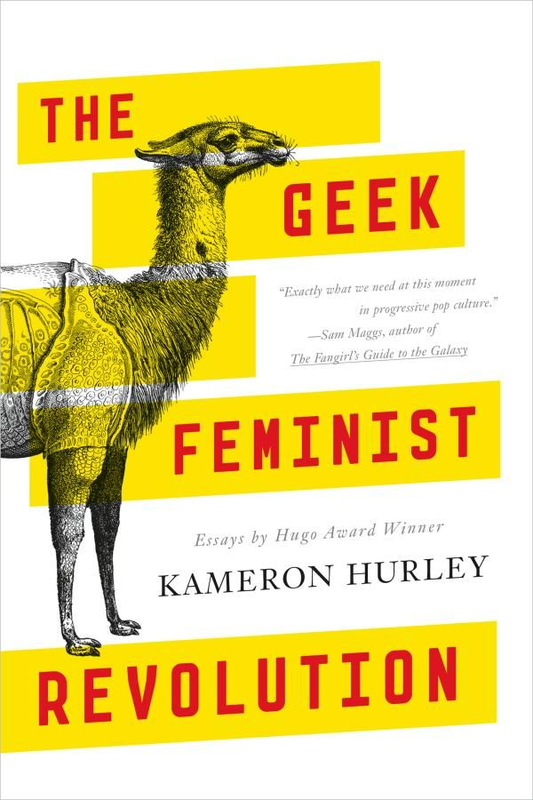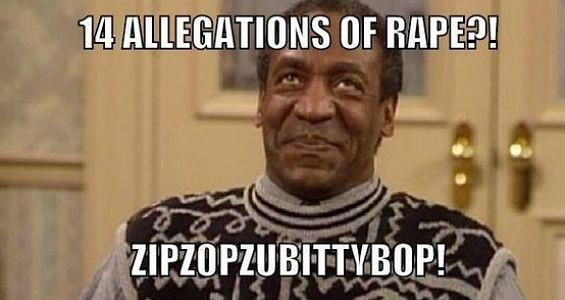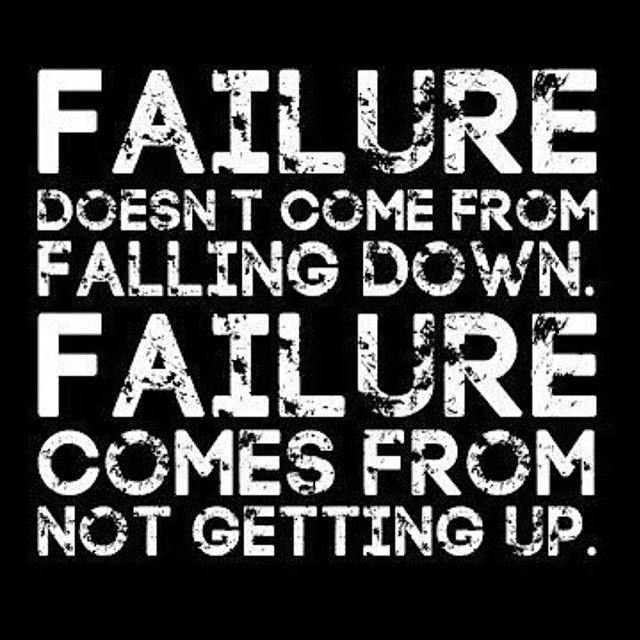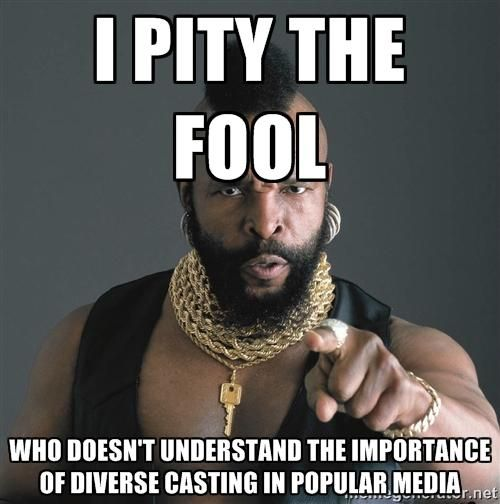|
by Devanjali Banerjee “They call for you, and everyone like you, everyone who always felt like they were out of place, like something was wrong, like the world was not built for them, to take a deeper look at what’s really broken (hint: it’s not you). Every geek feminist and aspiring geek feminist; every cultural revolutionary; every loud, angry, weepy, mad kid who wanted to be a hero but wasn’t sure where to start…” The title of the book caught my eye before anything else did. “The Geek Feminist Revolution”. It sounded bold and the cover looked intriguing. I clicked on it within seconds. You learn to expect no less from Ms. Hurley, who also happens to be a successful and effective ad-woman; clickbait is her bread and butter. The most satisfying thing is realizing that she backs up every word in the title. The very introduction to the book is rich with engaging information and interesting claims. Ms. Hurely proclaims that a revolution is going on. And its battles are being fought in the “comments sections of personal and professional websites, on subreddits like /r/fantasy, and, increasingly, in popular news outlets ranging from NPR to the New York Times”. Fandoms surrounding “science fiction and fantasy novels, games, and other media,” have finally become offline and mainstream. We are, increasingly, living in the “Age of the Geek’. Think about the number of people who accuse you of being Jon Snow when you say you know nothing about anything. Think about how mainstream talking about OTPs and ‘ships’ has become and how you rarely need to explain context regarding Star Wars when making Luke-Vader jokes. However, dominant groups aren’t too happy about increasing social awareness and acceptance of fandom culture given that it comes at the cost of more voices joining (or questioning) the dominant narratives. Narratives that have long been dominated by white males are now being 'hijacked' by women, people of colour, the LGBTQIA+ etcetera. And some people aren’t happy. Ms. Hurley puts it best when she says, “…So why the new backlash? Because the numbers of women in these spaces have indeed grown in the last decade. Women have gone from making up 25 to 30 percent of gaming audiences just ten years ago to over 50 percent of video game players, and 40 to 50 percent of creators. Forty percent of science fiction authors are female, as are 60 percent of readers of speculative genres. Their voices, their presence, cannot be denied or explained away with talks of tokenism and exceptionalism. Women are here.” Those who can control the narrative, can control our attention and shape our life choices. An engaging narrative teaches unconscious lessons that we imbibe and use as substantive evidence in our daily lives. Oh, multiple women accusing a famous celebrity of rape? (Yes, you caught me - I’m thinking Bill Cosby, or closer home, Anurag Kashyap) Must be cooked up by the celebrity’s competitors. Contemporarily, that’s a pretty (socially) acceptable social argument to make and stand by, unfortunately. Now, media is a powerful medium that creates narratives on a daily basis - and these narratives connect to human beings on a raw, emotional level with a sense of “the way the world is supposed to be, whether or not that world ever truly existed”. Human beings jump for joy when life comes with an instruction manual. Narratives are exactly that- tailor made opinions, and they help with a blueprint-to-figure-out-life complex. The responsibility of those then, who are tasked with writing literature, journalistic pieces, news articles et al, are so often influenced by the entitled that a certain section of society is often other-ed by the vested interests and myopic attitudes that hold (tightly, tightly) society’s purse strings. Largely autobiographical, Ms. Hurely bravely bares her personal life up to the reader in order for them to better understand how her values, her body of work and her motivations have been moulded and shaped by her experiences. A number of ism-s and social constructs are explored and “interrogated” by Ms. Hurely- sexism, racism, misogyny, patriarchy, sexual orientation and more. However, she dwells on all of these ideas, constructs and concepts in the most engaging and concise manner that I’ve never seen anyone do. This article is first in a four-parter review on “The Geek Feminist Revolution”. Her book is divided into three components, each with a decidedly different flavor. Level Up ‘includes essays about how to both improve craft and persist in the face of oftentimes overwhelming odds. The ability to persist is often a greater indicator of success in this field than raw talent.’ Geek includes pieces on media criticism as well as tropes in fantasy writing. Let’s Get Personal is a collection of more personal, autobiographical essays that are revelational as well as raw while Revolution includes “…pieces that poke at the wider work, and our broken systems and processes, and pull back the curtain over the “normal” society that’s presented as such in media.” Unpacking The “Real Writers Have Talent” Myth is an essay that goes on systematically to chip away at every presumption and pre-conceived notion that one has about writers and the nature of writing. Process is always a mystery and in a society where competition is person eat person (dogs do not eat dogs ordinarily but people routinely eat each other whole) world, upholding the notion that writing, is a function of natural, inherent flair and nothing else helps to maintain status quo and monopoly over narrative (yes, that word again). That sheer hard work and dedication is the only solution that there will ever be for the problems of aspiration and achievements is one that the average person is loath to buy-which is why shady ads purporting “1 pill means 10 kg weight loss- doctors baffled by this easy trick!” still work. Ms. Hurley draws an easy parallel between marketing and writing and says that learning the basics of advertising helped her craft immensely- both in writing fiction and in writing copy. Hard work teaches lessons about failure, perseverance and persistence that no amount of binge writing and stoned writing and drunk writing can teach you. “…to read people ranting on about talent and how some writers “have it” and some writers don’t just makes me roll my eyes, because it sounds like something you say to discourage people; worse, it sounds like some kind of ancient “blood will tell” bullshit, like writing success is wholly based on genetics.” That talent is often a catch-all term for inspired hard work is often difficult to conceive and Ms. Hurely hits hard at contemporary attitudes towards talent when she says, “…I hear people talk about “talent,” what I interpret them saying is that writing just comes more easily to some people than other people and that means only people who find it 'easy' should even try.” However, its interest backed up by true grit and determination that triumphs over repeated failure. In an interesting comparison to analytical skills, Ms. Hurley makes a case for a creed of genius that is born of hard work and persistence rather than flashes of brilliance- and leaves the reader filled with hope and passion. “The world is full of people who write poorly but passionately, and others who can put a sentence together but have no feeling behind it. All they have in common is that they don’t give up when people say they’re talentless hacks.“ Echoing Yeat’s dictum that “the best lack all conviction while the worst are full of a passionate intensity”, Ms Hurley is almost admonishing in her intensity to aspiring writers. What Marketing and Advertising Taught Me about the Value of Failure smacks of the kind of interdisciplinary wisdom that most self-help books love to peddle but is in reality, a crossover doctrine between writing and marketing that actually makes sense. Lauding the achievements of advertising, Ms Hurley remarks that “I have a deep and abiding love for advertising because I recognise its potential to change human behaviour… it’s advertising campaigns that reduced drunk driving, helped eliminate the pervasiveness of smoking (after getting us to smoke in the first place) , and got us all to wear seat belts”. Digging deeper into the creed that makes up the essence of advertising, Ms. Hurley characterizes advertising as appealing to human motivations (and cashing in on them) but also takes pains to point out that, “it took marketers doing a lot of diligent studies and focus groups and, admittedly, running a lot of shitty ads, that didn’t work to figure out how to break the spell of 'cool' that they’d given smoking in the first place.” Effective advertising is a tough craft and takes an “extraordinary amount of failure” to excel at. Because marketing emails and ad campaigns take far less time and effort than a book, Ms. Hurley assures doubting Thomases that the 'more you fail-more you gain' strategy is a win in the long run - with anecdotal evidence to boot. As she puts it, “failure is only useful if you’re learning from it. Failure because you panicked and put shit out the door is just failure.” The nature of failure is negative only in interpretation and often, we allow ourselves to paint pictures and make narratives of our failures into a tableau of who we are. Ms. Hurley urges us to use those failures as stepping stones leading somewhere, pushing us on to discover parts of ourselves that we can only dream of. Persistence, and the Long Con of Being a Successful Writer is about “…persisting in the game after you know what it’s really about. After the shine wears off. It’s persisting after all your hopes and aspirations bang headfirst into reality.” For all those readers who even vaguely considered writing as a legitimate career, this essay is an exercise in anticlimactic bitter truths: there is no short-cut to success, it’s simply persistence. Talent is not a trump card or anything more than 5 centimetre advantage in the race that is publishing and the writing business. Ms. Hurley takes us behind the glamorous world of publishing and de-mystifies almost every unconscious conception that one can have about it. Interestingly, she comments on the subject of 'one-book wonders' (a term that can arguably be applied to Harper Lee) and sagely remarks that, “…the backend business is tough- sales, marketing, and tons of distribution issues that aren’t anything you [the author] can control. And then there are reviews and online harassment and the constant speculation from strangers." On a more personal note, Ms. Hurley intersperses her advice with auto-biographical snippets that plot her learning curve from precocious teenaged writer to the jaded Hugo-award winning author she is today. She warns of the childish fantasy that she had-of wanting to be picked out of the crowd and be anointed as a 'good' writer and says quite bluntly,“…Nobody is out there waiting for you, to bask in the glow of your genius. Many more are quite happy to rip you down and shit on you.” Gritty, empathetic and real, the essay really punches you in the gut with when you realize - “Persistence wasn’t an endgame. It was the name of the road.” Taking Responsibility for Writing Problematic Stories talks about the dilemma of social tropes and whether a writer should buy into them or not, while crafting his/her narrative. Ms. Hurely wonderfully captures the onerous duty writers have in terms of crafting a narrative keeping in mind social context when she states, “…Though our stories may be fiction, the people who read them are not.” Ms. Hurley then goes on to explores the trope of “Bury Your Gays”; that is, the gay guy (or girl) ALWAYS dying in media and literature. That this trope is really patriarchy working its soft power is difficult to explain to persons who have internalized and rationalized this narrative. It’s the same kind of bullshit people spew when they defend the incessant rapes portrayed in Game of Thrones by (STUPIDLY) saying, the rapes are necessary to portray a realistic picture of an alternate medieval universe. Ms. Hurely gives it good when she responds to this toe-munching presumption by stating, “…realistic in what world? And did you forget you were writing fantasy?” Similarly, if you break down the Bury Your Gays trope, it really boils down to, “showing a tragic end for a gay character served to uphold the perceived social order in Western culture: if you were going to be gay, it would end tragically. Better conform.” That it is imperative for writers to “interrogate” their stereotypes and “work hard to understand how their work might be read in the context of other things…[is] because what we do has the ability to inspire and delight-or hurt and frustrate.” She speaks of her own experiences in writing problematic plot-lines and how when she inadvertently had given in to the aforementioned trope, she took responsibility for it. The bottom line is not just being aware of the social context of problematic or controversial narratives - it’s owning and being “willing to live” with your choice and the picture it paints in the heads of your readers. I’ll Make the Pancakes- On Opting In-and Out of the Writing Game addresses a number of problematic themes from everyday misogyny to the hardships endured by women writers to the importance of building your own narrative. This essay (I’m going to say this a lot) really resonated with me. It breaks down the unfair sexist presumptions women face and extends that logic to cover the kind of backlash women authors receive when they try to tell their stories. Ms. Hurley puts it blithely - “Welcome to being a woman with opinions navigating the court of public opinion. For my part, I’ve been loudly asserting my opinion on the Internet and in print for fifteen years, and it never gets any better when the battle trolls ooze up from the bubbling cesspit of the Internet and threaten death and sexual assault.” Challenging “power feminism” or “lean-in culture” (“that passes for mainstream white feminism right now”), Ms. Hurley questions the validity of urging women to be “smarter, faster, better” as an antidote to “institutionalized oppression, bias, and, unregulated, out-of-control capitalism”. This reeks of the Cool Girl syndrome, popularized by Gillian Flynn’s Gone Girl, which calls out the kind of exceptionalism that is expected of women in order for them to be respected. Unfortunately, there are only so many Marrisa Mayers around and, “you can fight all you want for individual wins, and fight to be the 'exceptional' woman, but… you’re an exception, not a rule. So long as the people with power - to hire and fire you, approve or deny your loan, or write up your speeding ticket - look at you through the lens of institutionalized racism, sexism, homophobia, or any other–ism they’ve learned from stories, videos, media and other biased individuals, a single win means nothing.” The essay inspires young women writers (and other repressed minorities) to speak up and step up to be the voice that is required to “speak truth to power” and be a part of a revolution of disgruntled individuals keen to effect change together as part of a collective geek feminist revolution. Fundamentally, this is a book about other-ing, being other-ed and triumphing despite the insurmountable odds that are sexism, misogyny and the whole cocktail in the form of a hugeass tidal wave and you, an injured surfer, armed with a broken surfboard and your wits, to tame the tide. It’s a success story where the underdog triumphs by dint of blood, sweat and blood and written with blood, blood and blood. And who doesn’t like success stories with insane odds? [Admit it, you thought of Jon Snow v. Ramsay Bolton here]
Follow us on Facebook and Instagram to be notified whenever we release new articles.
Do you use an RSS reader? Even better!
0 Comments
Leave a Reply. |
Categories
All
Archives
December 2022
|





 RSS Feed
RSS Feed
